Three breakthroughs of Resolution 57
According to former Minister Nguyen Quan, Resolution 57-NQ/TW on science and technology development, innovation, digital transformation, together with Resolution 59 on international integration, Resolution 66 on institutional innovation and Resolution 68 on private economic development, not only form the "four pillars" for national development in the new era.
“ These resolutions demonstrate a very high political determination to make science, technology, industry and innovation the central driving force for national development, ” said Mr. Nguyen Quan.
As the former Minister of Science and Technology , Mr. Nguyen Quan emphasized the remarkable and interesting new points of Resolution 57. According to him, the new points here are also synonymous with unprecedented breakthroughs of our Party and State in the role of science and technology as well as development policies.
The first breakthrough is that Resolution 57 has set very high goals for science and technology. Those goals are that by 2030, the digital economy will account for 30% of GDP, and by 2045, it will reach 50%, and it is proposed to increase budget investment for science and technology to at least 3% of total budget expenditure and social investment for science and technology to reach 2% of GDP by 2030.
Regarding the target related to the digital economy, according to former Minister Nguyen Quan, the digital economy currently only accounts for about 18% of GDP. Therefore, this is a real race. Meanwhile, regarding the target of investment in science and technology, it currently only accounts for 0.5% of GDP, so the 5-6 year period for the target stated in Resolution 57 is truly a challenge.
Furthermore, to achieve the investment goals for science and technology as in Resolution 57, in reality, developed countries like Korea and China need decades to achieve them. Korea took 40 years, and China also needed 30 years.
The second breakthrough, Resolution 57, allowed the application of a fund and spending mechanism instead of " imposing a rigid budget management mechanism that has been hindering for decades ," said former Minister Nguyen Quan.
 |
| Former Minister of Science and Technology Nguyen Quan commented that Resolution 57 of the Politburo has many important breakthroughs. Photo: QL |
The third breakthrough of Resolution 57 is the establishment of the Central Steering Committee on Science, Technology, Innovation and Digital Transformation, headed by the General Secretary of the Party Central Committee. This is the first time the General Secretary has headed a Central Steering Committee to implement the Resolution on Science, Technology, Innovation and Digital Transformation.
The role of business is indispensable.
It can be said that Resolution 57 and Resolution 68 of the Politburo both emphasize the key role of enterprises, especially private enterprises. Resolution 68 marks an important turning point: the Party for the first time identified the private economy as the “most important driving force” of the economy. In fact, Vietnamese private corporations such as VinFast, Hoa Phat, FPT… are also leading enterprises in technology investment, innovation, and development of industrial products with high intellectual content.
This is also the highlight of Resolution 57 - according to former Minister Nguyen Quan. Resolution 57 has "awakened" the strong interest in investment in science and technology, innovation and digital transformation from businesses, especially private enterprises.
Mr. Nguyen Quan analyzed that according to current regulations, business investment in science and technology is only encouraged rather than required. In reality, many businesses only invest in science and technology up to hundreds of millions of VND. This amount of money is not enough for technological innovation, let alone creating new products.
Former Minister Nguyen Quan also said that the current situation is that the fund for science and technology is managed like the state budget, and to spend it again, one has to go through a "forest" of procedures. This is one of the reasons why many businesses are not interested in investing in science and technology as well as innovation.
Analyzing further, Mr. Nguyen Quan said that with the implementation of the Law on Corporate Income Tax for the past 10 years, enterprises are not interested in investing in science and technology. Regulations on the science and technology development fund (maximum deduction of 10% of pre-tax profit) are not mandatory, lack flexibility, and do not create real investment motivation.
“ Many businesses choose to invest with after-tax profits to avoid procedural constraints, which means they do not receive tax incentives ,” said Mr. Nguyen Quan.
According to Mr. Nguyen Quan, Resolution 57 allows the application of a fund and spending mechanism instead of imposing a rigid budget management mechanism that is currently hindering, which is a great driving force for science and technology activities.
| A substantive and effective incentive mechanism is needed so that businesses, especially small and medium-sized enterprises, can proactively innovate technology and apply digital technology to production, former Minister Nguyen Quan proposed. |
Source: https://congthuong.vn/nguyen-bo-truong-nguyen-quan-3-diem-dot-pha-chua-tung-co-cua-nghi-quyet-57-389736.html




![[Photo] Prime Minister Pham Minh Chinh receives leaders of Excelerate Energy Group](https://vphoto.vietnam.vn/thumb/1200x675/vietnam/resource/IMAGE/2025/5/29/c1fbe073230443d0a5aae0bc264d07fe)


![[Photo] Prime Minister Pham Minh Chinh attends the event "Digital transformation of the banking industry by 2025"](https://vphoto.vietnam.vn/thumb/1200x675/vietnam/resource/IMAGE/2025/5/29/0e34cc7261d74e26b7f87cadff763eae)




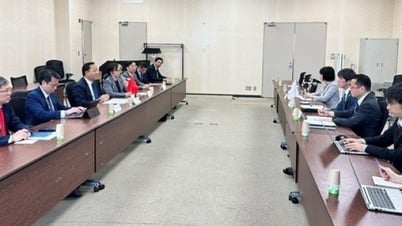







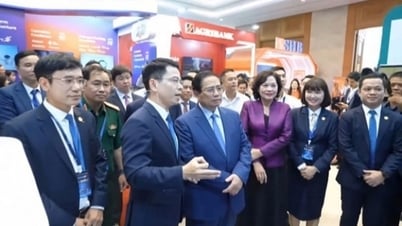

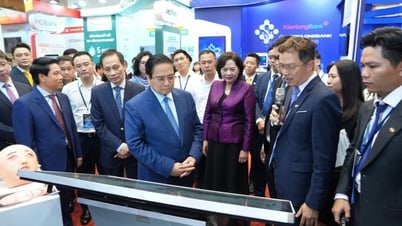


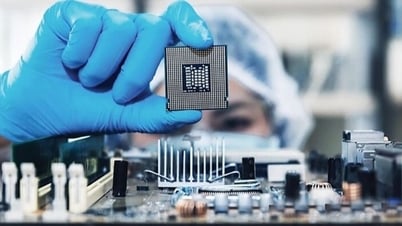



























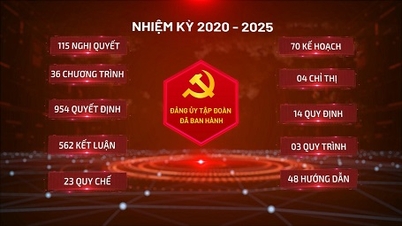













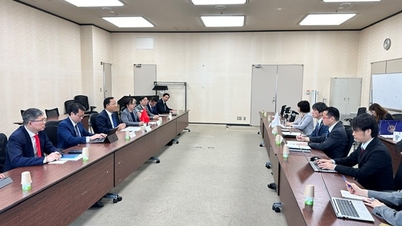













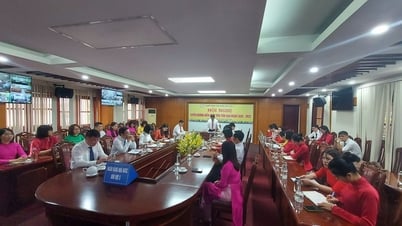














Comment (0)